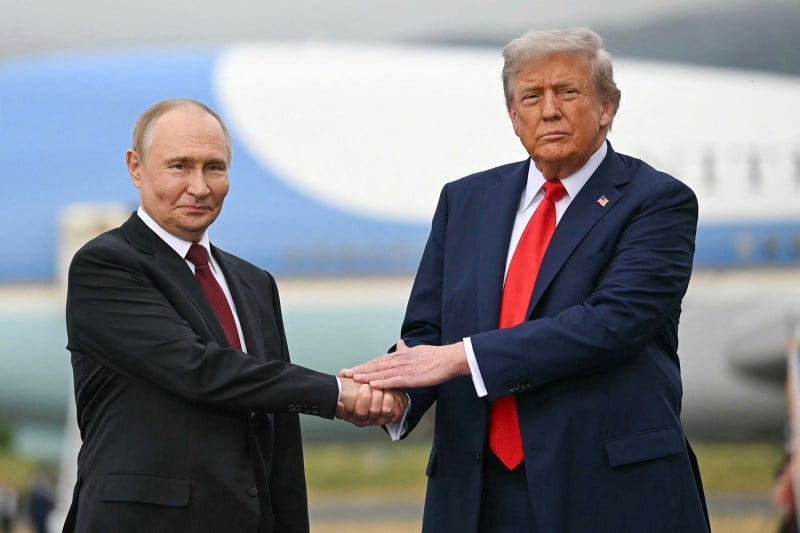Trump Delays Russia Sanctions After Breakthrough Diplomatic Summit with Putin in Alaska

Trump Delays Additional Moves on Russia Following Productive Summit with Putin
In a notable development, the current U.S. administration leader announced a pause on any further economic restrictions targeting the Russian government, attributing this decision to a successful diplomatic encounter in Alaska with the Russian president. The meeting, characterized by constructive dialogue, led to an immediate halt in plans for heightened punitive measures.
During his comments, the American leader emphasized the positive tone established during the face-to-face exchange, describing the interaction as “very well.” While expressing no immediate intention to expand the existing restrictive framework, the leader left open the possibility that the situation might warrant reconsideration in the near future, specifically mentioning a time frame of a few weeks for re-evaluation.
This development marks an important moment in bilateral relations, reflecting a temporary de-escalation amid ongoing geopolitical complexities. The postponement of new restrictive policies signals a degree of diplomatic flexibility and a willingness to engage in dialogue without immediate recourse to economic penalties.
Contextualizing the Diplomatic Progress
The decision to hold off on further sanctions follows a rare direct interaction between the two heads of state, providing an opportunity to reassess the dynamics of their relationship. Diplomatic engagements of this nature are pivotal in shaping international policies, particularly where tensions have historically been marked by economic and strategic confrontations.
By deeming the meeting productive, the American administration’s stance highlights a preference for negotiation and communication over unilateral punitive actions. This can be seen as a strategic move, seeking to exploit moments of diplomatic openness to foster stability and explore possible common ground.
At the same time, the acknowledgment that the conversation could revisit the issue of restrictions underscores the fluidity of international policy decisions — they often adapt in response to unfolding events and changing political landscapes. The cautious approach suggests that while the current atmosphere is conducive to dialogue, the door remains open for renewed scrutiny if circumstances shift.
Implications for Future Relations and Policy Direction
The postponement of new economic measures reflects a delicate balancing act within the broader geopolitical framework. It indicates a pragmatic recognition that immediate escalations may not serve constructive ends and that engagement, even with rivals, can yield valuable insights and possibly pave the way for more comprehensive agreements over time.
This stance has potential ramifications for how regional and global stakeholders interpret the shifting priorities of the administration. It signals an adaptive policy posture focused on measured responses rather than precipitous actions, which may contribute to breaking deadlocks in ongoing disputes and conflicts.
Moreover, the willingness to reconsider actions in the near term portrays an approach to foreign relations as iterative, contingent on progress made through continued diplomatic efforts and observable outcomes. Such an approach encourages both sides to maintain channels of communication open while monitoring adherence to any agreements or commitments that might emerge.
Analyzing Strategic Considerations
Beyond the immediate news, the announcement reflects longstanding tension between punitive measures and engagement strategies as tools of statecraft. Economic restrictions have often been employed to influence international behavior, but their effectiveness depends heavily on timing, unity of effort, and the broader diplomatic context.
The current decision suggests a viewpoint that immediate expansion of restrictive actions may not advance the desired objectives and could potentially hinder dialogue. Recognizing when to pause and recalibrate signals a nuanced understanding of the complexities involved in managing bilateral relationships marked by contrasting interests and historical challenges.
In summary, the recent high-level discussions appear to have temporarily eased the posture on economic constraints, highlighting the ongoing interplay between diplomacy and economic policy. This episode exemplifies how dialogue at the highest levels can shape the trajectory of international relations, balancing firmness with openness to reconciliation.
